ESWN Welcomes New Leadership Board Members
We are excited to announce that Asmeret Asefaw Berhe, Melissa Burt, Maura Hahnenberger, Rachel Licker, Aisha Morris, and Melanie Harrison Okoro have joined ESWN’s Leadership Board! We appreciate their dedication to women in the geosciences. These amazing women join our continuing board members Tracey Holloway (President), Meredith Hastings (Vice-President), Erika Marín-Spiotta (Treasurer), Manda Adams (Secretary), Rebecca Barnes, Emily Fischer, and Christine Wiedinmyer. We also thank past Board Member Carmen Rodriguez, who is rotating off the ESWN Board after over four years of service to our community. To learn more about the new and continuing board members, check out our bios.
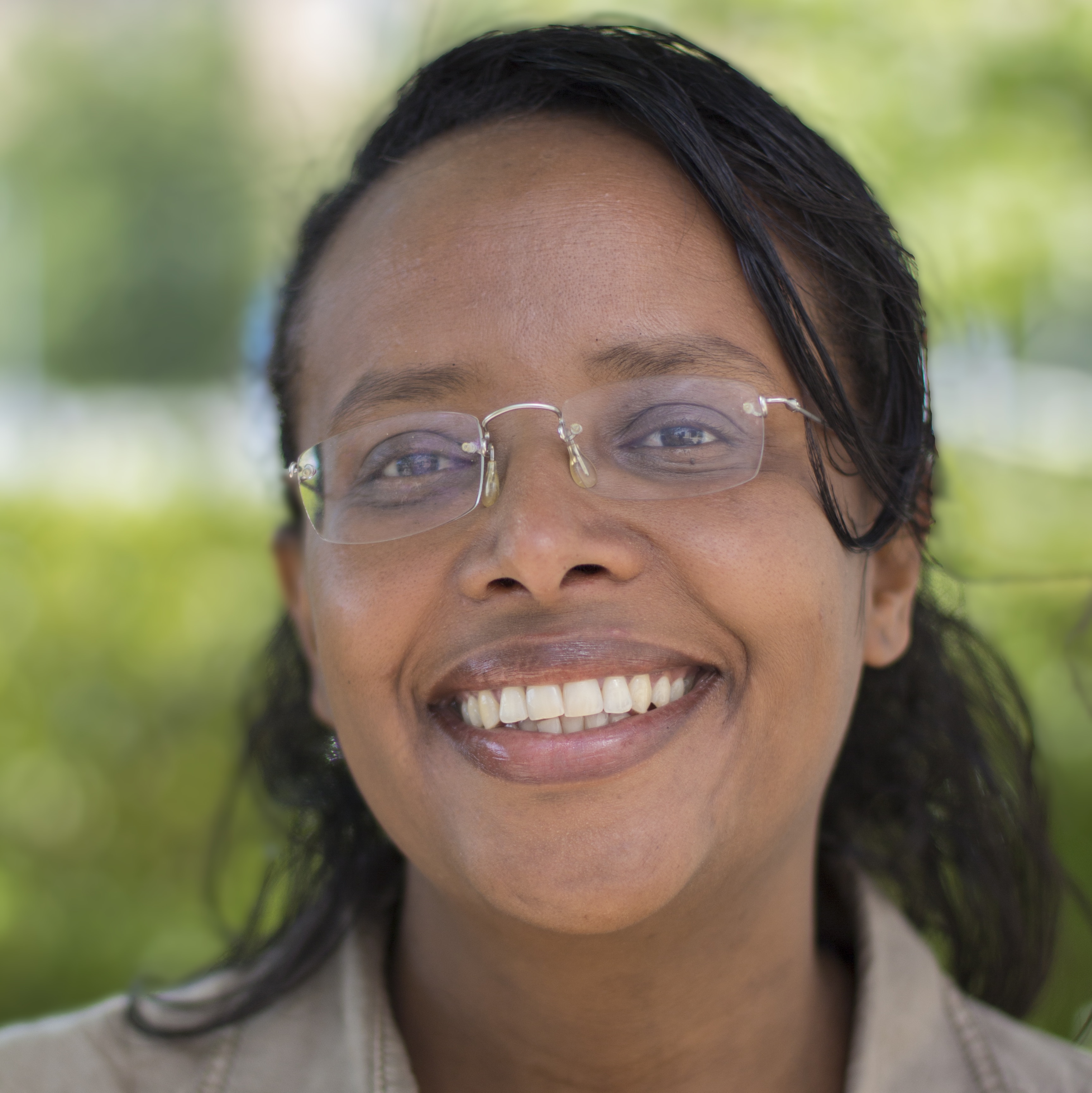 Asmeret Asefaw Berhe is an associate professor of soil biogeochemistry in the School of Natural Resources at the University of California, Merced. Her research primarily focuses on biogeochemical cycling of essential elements (esp. carbon and nitrogen) in the soil system and how physical perturbations in the environment (ex. erosion, fire, changes in climate) affects stability and mechanisms of stabilization of soil organic matter. Asmeret has a BSc in Soil & Water Conservation from the University of Asmara, a M.Sc. in Resource Development from Michigan State, and a Ph.D. in Environmental Science, Policy, & Management from UC-Berkeley.
Asmeret Asefaw Berhe is an associate professor of soil biogeochemistry in the School of Natural Resources at the University of California, Merced. Her research primarily focuses on biogeochemical cycling of essential elements (esp. carbon and nitrogen) in the soil system and how physical perturbations in the environment (ex. erosion, fire, changes in climate) affects stability and mechanisms of stabilization of soil organic matter. Asmeret has a BSc in Soil & Water Conservation from the University of Asmara, a M.Sc. in Resource Development from Michigan State, and a Ph.D. in Environmental Science, Policy, & Management from UC-Berkeley.
“I have been a member of ESWN since 2005, it has been a joy to be part of this supportive community of researchers dedicated to increasing representation and advancing careers of women in earth sciences. It was a pleasure to be invited to join the leadership board, and I am excited to do my share to advance the mission of ESWN.”
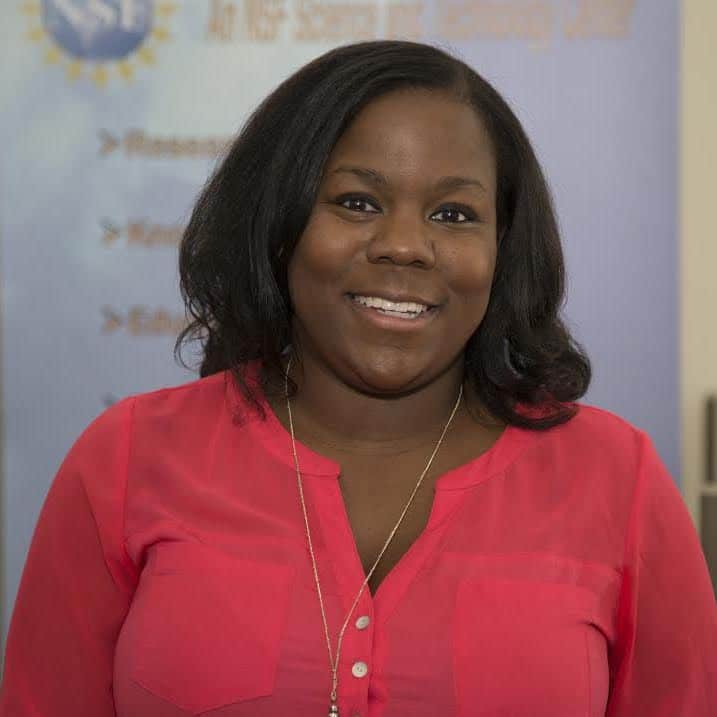 Melissa Burt is a research scientist at Colorado State University. Her research focuses on the interactions of Arctic clouds, radiation, and sea ice, with interests ranging from cloud-radiation feedbacks, hydrological and energy cycles in climate, and climate change feedbacks. Melissa also serves as the Education and Diversity Manager in the College of Engineering and Department of Atmospheric Science at Colorado State University. In this position she is committed to improving and increasing diversity in STEM by designing programs to encourage participation, and increase access and retention for members of historically underrepresented groups. Melissa has a B.S. degree in Meteorology from Millersville University and a M.S. and Ph.D. in Atmospheric Science from Colorado State.
Melissa Burt is a research scientist at Colorado State University. Her research focuses on the interactions of Arctic clouds, radiation, and sea ice, with interests ranging from cloud-radiation feedbacks, hydrological and energy cycles in climate, and climate change feedbacks. Melissa also serves as the Education and Diversity Manager in the College of Engineering and Department of Atmospheric Science at Colorado State University. In this position she is committed to improving and increasing diversity in STEM by designing programs to encourage participation, and increase access and retention for members of historically underrepresented groups. Melissa has a B.S. degree in Meteorology from Millersville University and a M.S. and Ph.D. in Atmospheric Science from Colorado State.
“I am very excited and honored to join the ESWN leadership board. ESWN has provided me with an exceptional network of talented and brilliant women, and more importantly a supportive and welcoming community. I look forward to contributing to more efforts aimed at increasing participation and engagement of women of color in the earth and environmental sciences.”
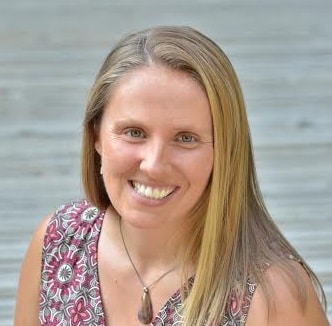 Maura Hahnenberger is an Assistant Professor in the Geosciences Department at Salt Lake Community College, where she teaches and advises in the Atmospheric Sciences and Geography programs in both face to face and online settings. Maura is the founder of the WaterGirls outreach program which provides middle school girls with field experiences conducting water science. She also serves on the boards of the Utah Chapter of the American Meteorological Society and the SLCC Chapter of the Utah Women in Higher Education Network. Her research and teaching interests center around natural and human-caused environmental hazards including dust storms, air pollution, and hazardous weather. She received her B.S. and M.S. in Meteorology and Ph.D. in Atmospheric Sciences from the University of Utah studying dust storms in the eastern Great Basin of Utah.
Maura Hahnenberger is an Assistant Professor in the Geosciences Department at Salt Lake Community College, where she teaches and advises in the Atmospheric Sciences and Geography programs in both face to face and online settings. Maura is the founder of the WaterGirls outreach program which provides middle school girls with field experiences conducting water science. She also serves on the boards of the Utah Chapter of the American Meteorological Society and the SLCC Chapter of the Utah Women in Higher Education Network. Her research and teaching interests center around natural and human-caused environmental hazards including dust storms, air pollution, and hazardous weather. She received her B.S. and M.S. in Meteorology and Ph.D. in Atmospheric Sciences from the University of Utah studying dust storms in the eastern Great Basin of Utah.
“ESWN has been a huge benefit to me as I have began my career by expanding my network of scientists and helping me connect with critical opportunities such as grants and invited talks. It has also become a place where I know I can go to get thoughtful advice and guidance as I move through my career. I am joining the ESWN board with three main goals in mind (1) expand opportunities for female scientists to network and connect with each other, both in person and virtually, (2) continue highlighting the great work that ESWN members do in their professional lives and improve recognition of that work, and (3) endeavor to help women scientists find support systems to tackle personal and professional challenges they face. ESWN has made great strides over time and I feel privileged to be part of its continued evolution.”
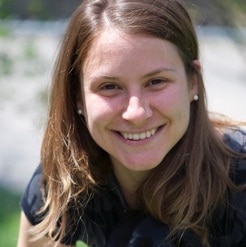 Rachel Licker is an American Association for the Advancement of Science (AAAS) Science and Technology Policy Fellow at the U.S. Department of State. Through her fellowship, Rachel works on environmental finance and the implementation of several multilateral environmental agreements. Prior to her fellowship, Rachel carried out research on the effects of climate on human migration while at a postdoc at Princeton University. Her research interests also span the effects of climate and social factors on global and regional crop production. She holds a Ph.D. in Environment and Resources and a B.S. in Biology from the University of Wisconsin-Madison, as well as a M.S. in Environmental Studies and Sustainability Science from Lund University in Sweden.
Rachel Licker is an American Association for the Advancement of Science (AAAS) Science and Technology Policy Fellow at the U.S. Department of State. Through her fellowship, Rachel works on environmental finance and the implementation of several multilateral environmental agreements. Prior to her fellowship, Rachel carried out research on the effects of climate on human migration while at a postdoc at Princeton University. Her research interests also span the effects of climate and social factors on global and regional crop production. She holds a Ph.D. in Environment and Resources and a B.S. in Biology from the University of Wisconsin-Madison, as well as a M.S. in Environmental Studies and Sustainability Science from Lund University in Sweden.
“I have broadened my professional network tremendously through ESWN. I believe it is an important resource for young, female scientists as they forge their career path. For example, it is a place to ask questions, learn from colleagues at a variety of career levels, and connect with women both in one’s own and varied disciplines around the world. Through my board membership, I hope to help broaden the ESWN network and continue expanding the ways in which ESWN is of service to the community. I am honored to participate and hope members will feel free to reach out with any ideas!”
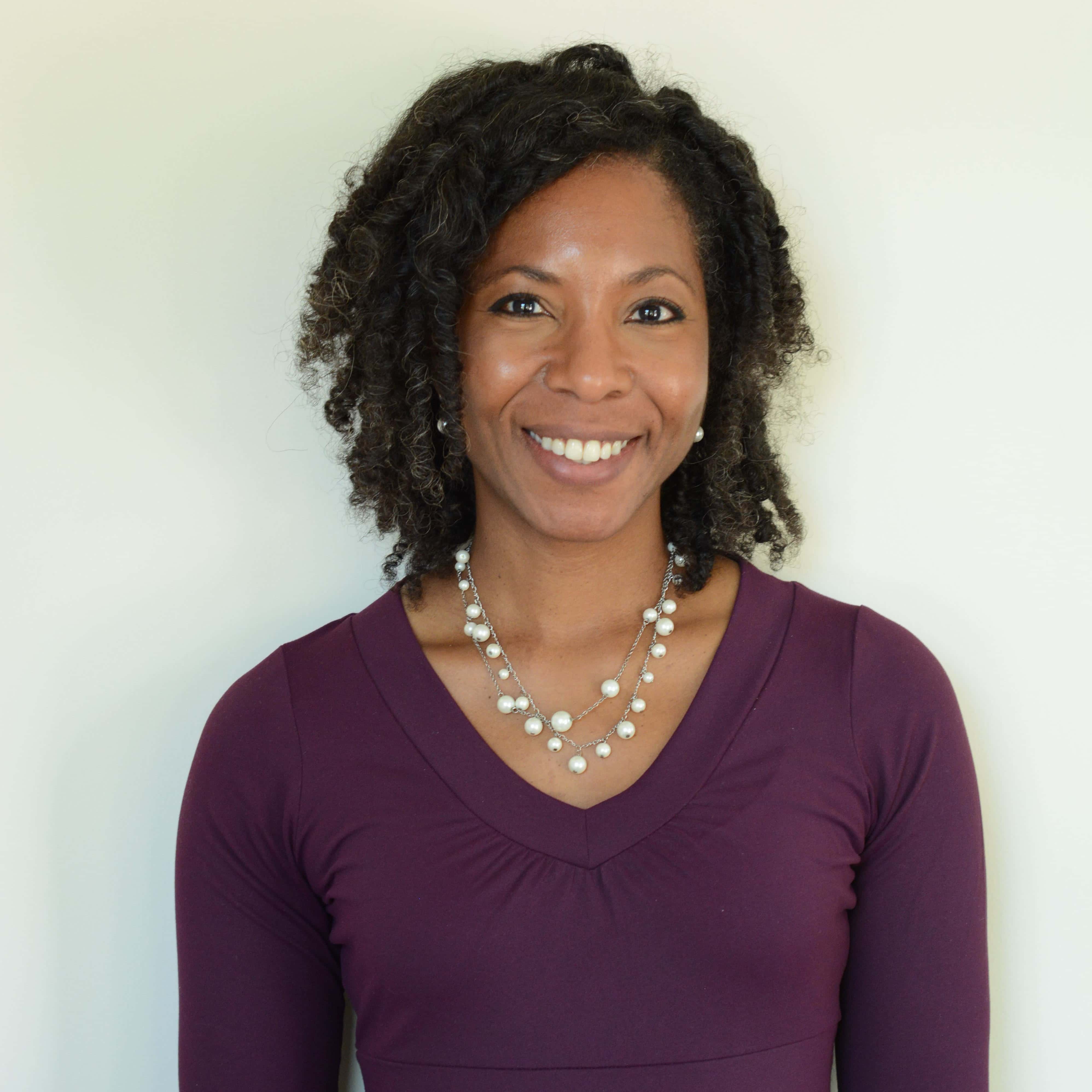 Aisha Morris is an Education Specialist and the Director of the Research Experiences in Solid Earth Science for Students (RESESS) internship program managed by UNAVCO. Aisha’s primary area of focus is crafting strategies for attracting, training, and retaining the diverse geoscience workforce of the future. In her current position, Aisha is responsible for UNAVCO’s Geo-Workforce Development Initiative, including managing undergraduate and graduate student internship programs and supporting early career professionals as they transition into the geoscience workforce. Aisha’s graduate and postdoctoral research interests focused on the geology and evolution of volcanic terrains on Earth and terrestrial planets. Aisha earned her B.Sc. in Geology from Duke University and both her M.Sc. and Ph.D. in Geology and Geophysics from the University of Hawaii at Manoa.
Aisha Morris is an Education Specialist and the Director of the Research Experiences in Solid Earth Science for Students (RESESS) internship program managed by UNAVCO. Aisha’s primary area of focus is crafting strategies for attracting, training, and retaining the diverse geoscience workforce of the future. In her current position, Aisha is responsible for UNAVCO’s Geo-Workforce Development Initiative, including managing undergraduate and graduate student internship programs and supporting early career professionals as they transition into the geoscience workforce. Aisha’s graduate and postdoctoral research interests focused on the geology and evolution of volcanic terrains on Earth and terrestrial planets. Aisha earned her B.Sc. in Geology from Duke University and both her M.Sc. and Ph.D. in Geology and Geophysics from the University of Hawaii at Manoa.
“I am honored and excited to join the Leadership Board in service to the ESWN members. The ESWN continues to provide an unparalleled network of support and resources for women of all career stages in the earth sciences. I look forward to supporting the geoscience community, and particularly the ESWN, in ongoing and new initiatives to broaden participation in the geosciences.”
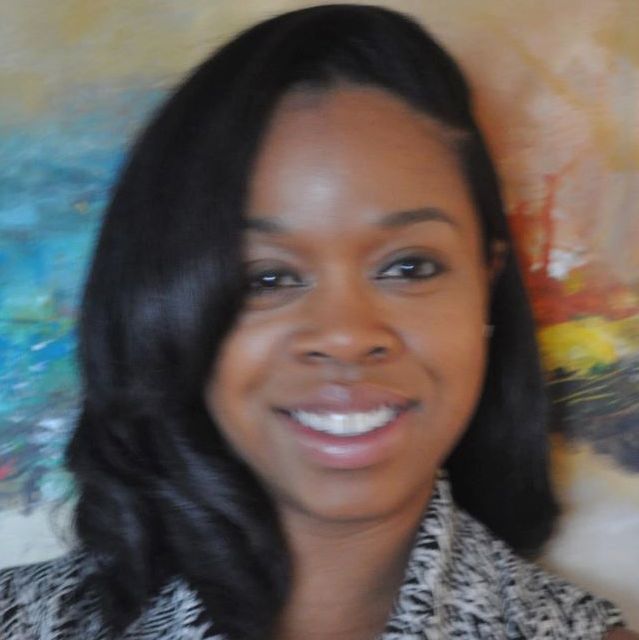 Melanie Harrison Okoro is an environmental scientist at the National Oceanic and Atmospheric Administration (NOAA) in the National Marine Fisheries Service (NMFS). Her major research interests include understanding biogeochemical processes (flux and pools of nitrogen and phosphorus) in alluvial wetlands and aquatic ecosystems across landscapes. Melanie’s current interest also include topics related to ecosystem level impacts of pollutants on water resource and natural resource management. She has a B.S. degree in Biology from Johnson C. Smith University and a Ph.D. in Marine Estuarine and Environmental Science from the University of Maryland Baltimore County. Melanie is currently on faculty as a LEO Lecturer teaching General Ecology at the University of Michigan.
Melanie Harrison Okoro is an environmental scientist at the National Oceanic and Atmospheric Administration (NOAA) in the National Marine Fisheries Service (NMFS). Her major research interests include understanding biogeochemical processes (flux and pools of nitrogen and phosphorus) in alluvial wetlands and aquatic ecosystems across landscapes. Melanie’s current interest also include topics related to ecosystem level impacts of pollutants on water resource and natural resource management. She has a B.S. degree in Biology from Johnson C. Smith University and a Ph.D. in Marine Estuarine and Environmental Science from the University of Maryland Baltimore County. Melanie is currently on faculty as a LEO Lecturer teaching General Ecology at the University of Michigan.
“As a research scientist, mother, and wife, I know how important it is to see women doing science and sharing their experiences with one another. The need for representation and visibility of different perspectives as we shape our vision of what a scientist looks like has reached a critical point, and ESWN provides a powerful platform and supportive network for women to share their perspectives. As an African-American woman, who has been subject to the pressures and challenges of forging a successful career as a scientist while an underrepresented minority, I value ESWN’s commitment to career development, peer mentoring and community building for women in the geosciences. I hope to continue the mission and vision of ESWN, and work with the ESWN board and members to build a supportive community and network for women forging a career in science. One of my goals as a board member, is to reach those who most need to see themselves in science, and as scientists: those who have been traditionally underserved by science.”
